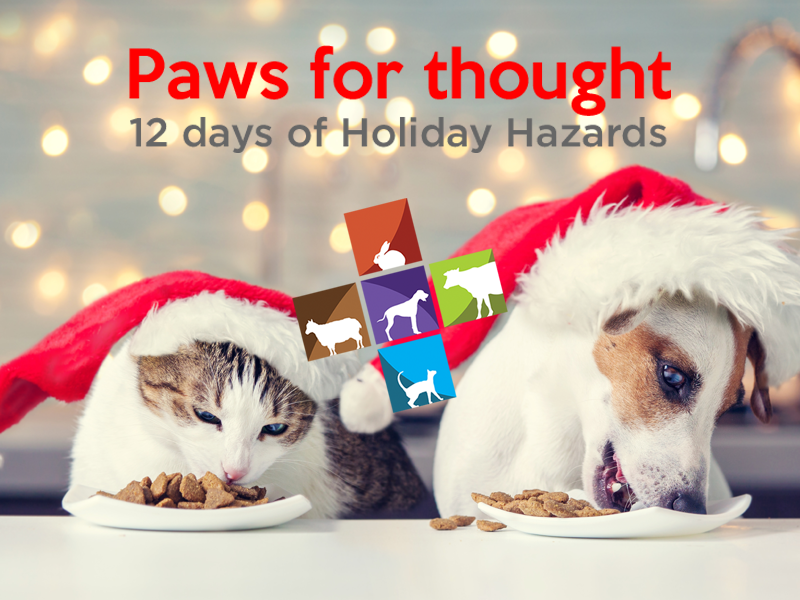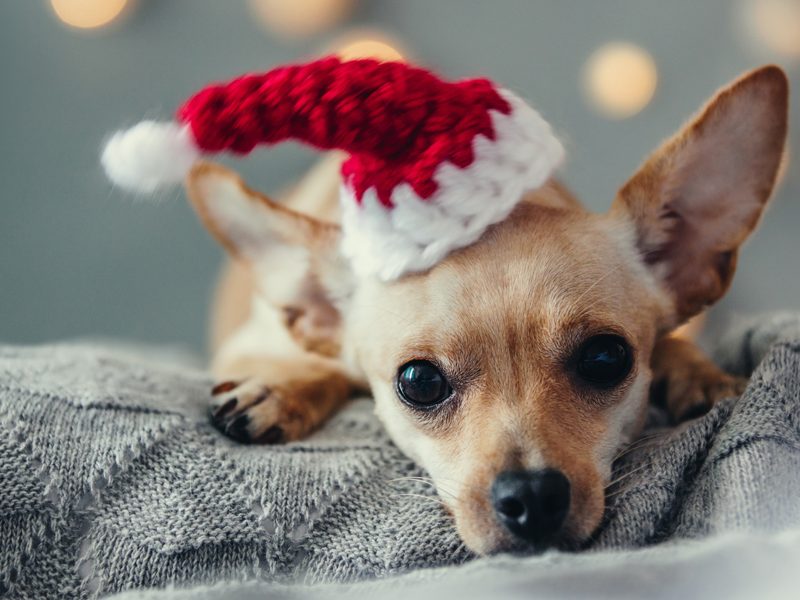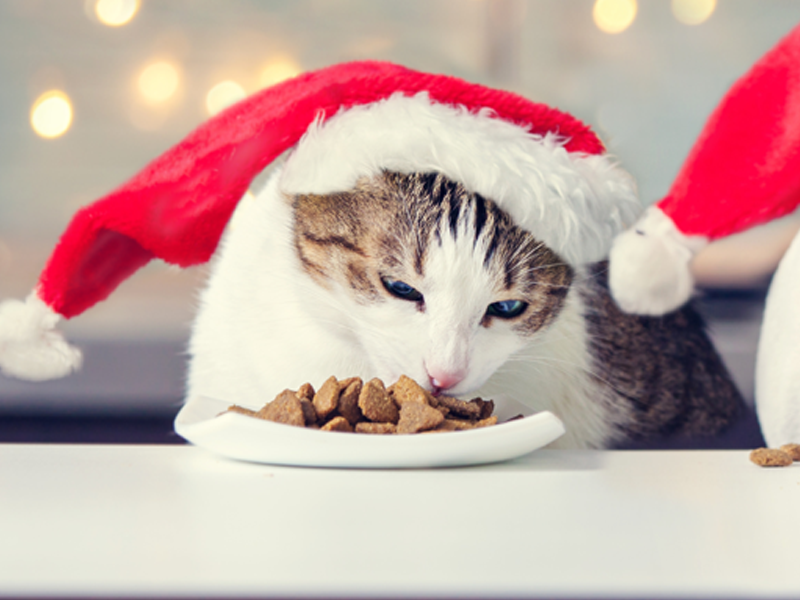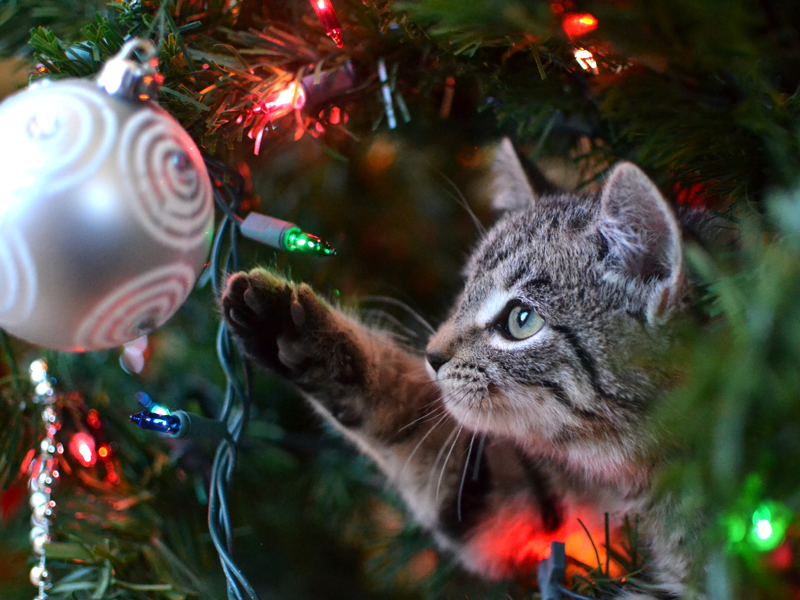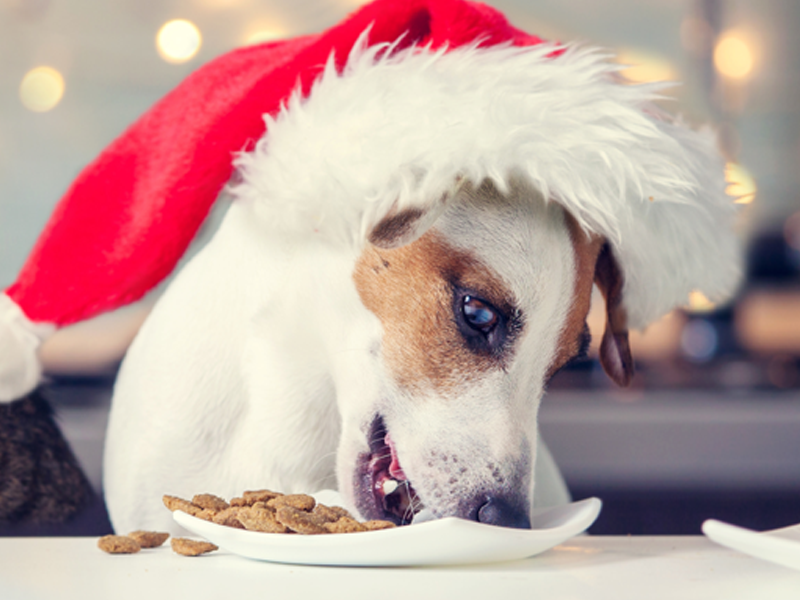9. Decorations
Although not toxic, any decorations could cause an obstruction in your pet’s gastrointestinal tract if swallowed. Christmas lights may also be chewed and could cause an electric shock.
Those sparkly baubles look like great toys for your pet to have a good chew on, so avoid leaving your pet unsupervised around the Christmas tree. Using an extension cord which cuts out automatically when damaged is also advisable to protect your pets.
10. Festive flowers
Poinsettia, mistletoe and ivy are all mildly toxic to your pets. Signs of ingestion can include vomiting, excess salivation and diarrhoea.
Although lilies are not a festive flower, they are often included in Christmas bouquets and you should be aware that they are incredibly toxic to both cats and dogs. Ingestion of any part of the flower can cause acute kidney injury and potentially death.
Be sure to keep these plants out of reach of your pets, and if at all possible avoid having lilies in your house.
